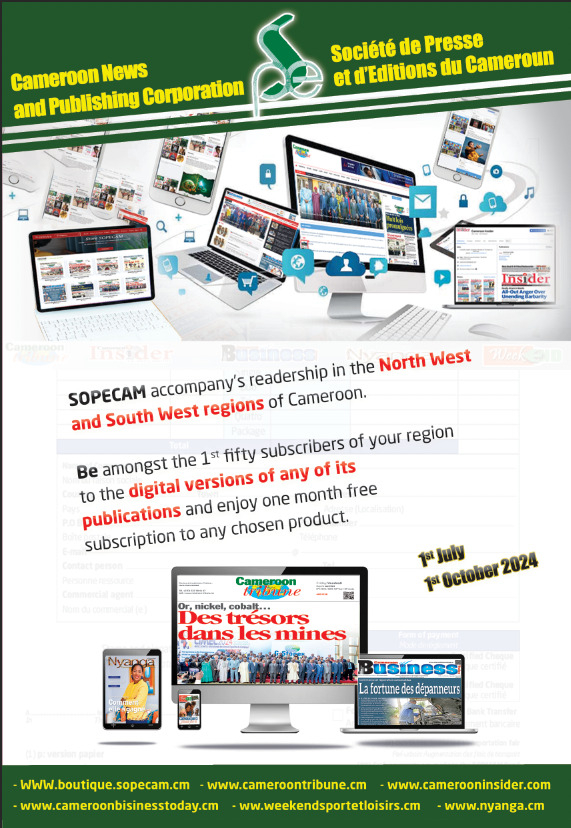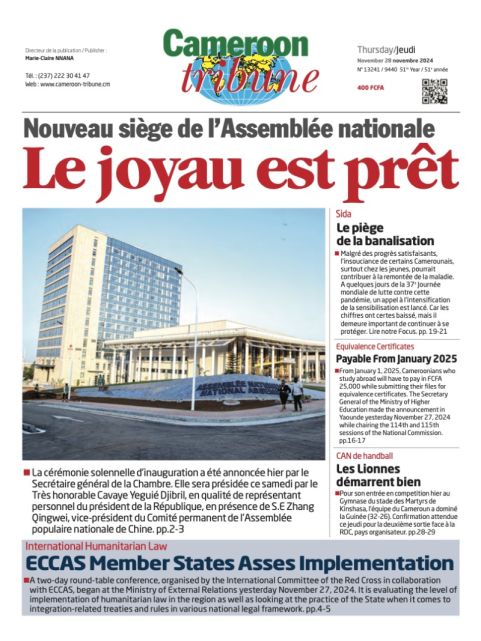Bolster Economic Growth To Attain Emergence
- Par Godlove BAINKONG
- 02 janv. 2019 11:17
- 0 Likes
Years and months have gone by, drawing Cameroon and Cameroonians closer to the dream of changing their economic status. 2018 is history and as 2019 begins, the route to becoming a middle-income economy, call it ‘Emergence,’ as wished by President Paul Biya, is increasingly becoming shorter. Mathematically, 16 years separate 2019 from the magic 2035. 16 years might look far enough to strike a good balance capable of ascertaining the attainment of the hope-raising status.
But in the world of uncertainty, coupled with the global economic fluctuations which have not left Cameroon indifferent, concreate actions must be taken now to get on board all that is needed to drive the economy to emergence. For, time waits for no one! Conscious of the challenge of getting the dream realised, President Paul Biya, in his state-of-the nation address on December 31, 2018 once again reminded his fellow compatriots of the necessity to accelerate the growth rate of the economy. The Head of State said, “Our economy is gradually recovering thanks to measures we have taken. However, we will have to redouble our efforts to stay on the path of emergence.”
Understandably so as attaining a middle-income economy status, among others, requires a robust and sustainable double-digit economic growth rate over decades. In fact, the growth rate vis-à vis the size of the population has to be substantial. Cameroon has stayed resilient in the face of the global economic quagmire but her growth rate which turns around 4.5 per cent remains largely insufficient to attain emergence. Being the captain of the ship, President Paul Biya did not leave his people to wander around attaining the objective. He notably singled out agriculture, which he observed, absolutely needs to be modernised.
Logically so as a people who cannot feed themselves to satisfaction would be unable to pull the economy out of the doldrums. Emergent countries today are, to say the least, food selfsufficient. They produce what they consume and consume what they produce. Importing even what the country has huge potentials to produce in great quantities is counter-productive. “The broad outline of this “agricultural revolution” was defined at the Ebolowa Agricultural Show and is still relevant,” he noted. There is need to materialise it.
To the sustainable qualitative and quantitative agricultural production should be added local processing. Not only does this add value to the produce but it equally creates jobs. A country that produces and exports raw materials only to import finished products at almost cutthroat prices can only remain at infancy. Not a virtue for an emergent-aspiring country at all! Cameroon absolutely needs to industrialise.
Fortunately, she already has an Industrial Master Plan which is year ning for implementation. Industrialisation also entails energy supply and state-of-the-a...
Cet article complet est réservé aux abonnés
Déjà abonné ? Identifiez-vous >
Accédez en illimité à Cameroon Tribune Digital à partir de 26250 FCFA
Je M'abonne1 minute suffit pour vous abonner à Cameroon Tribune Digital !
- Votre numéro spécial cameroon-tribune en version numérique
- Des encarts
- Des appels d'offres exclusives
- D'avant-première (accès 24h avant la publication)
- Des éditions consultables sur tous supports (smartphone, tablettes, PC)













Commentaires